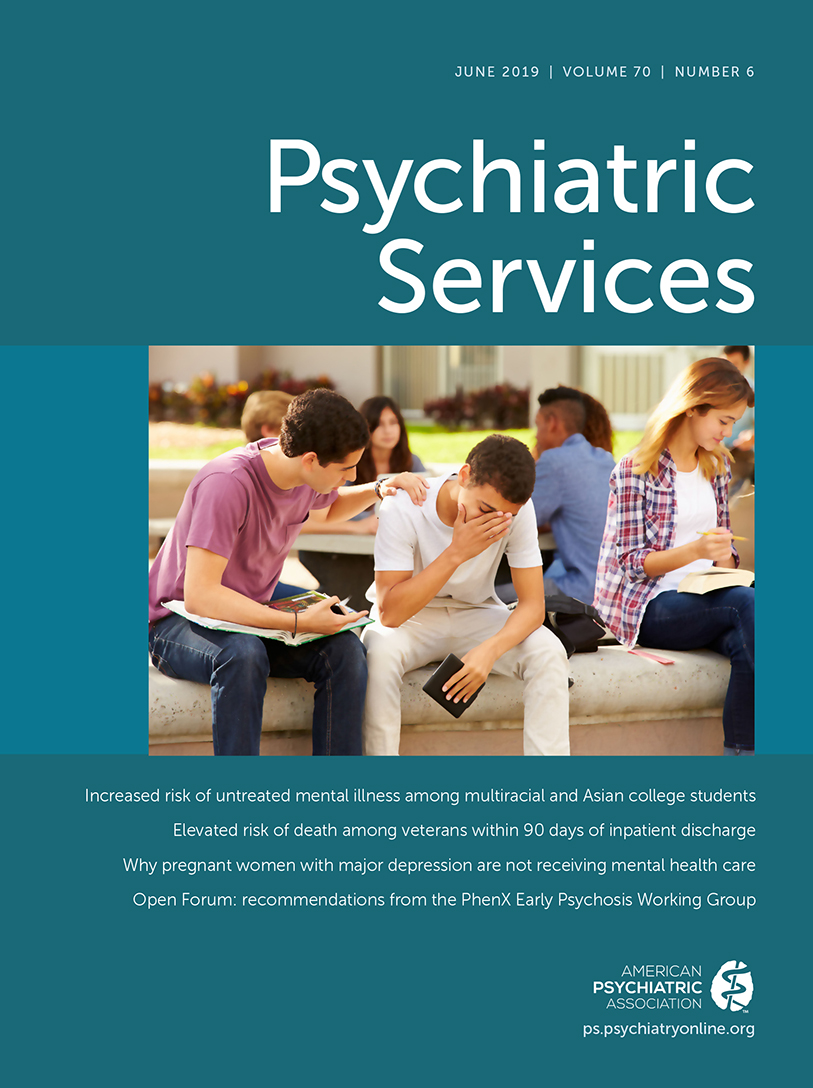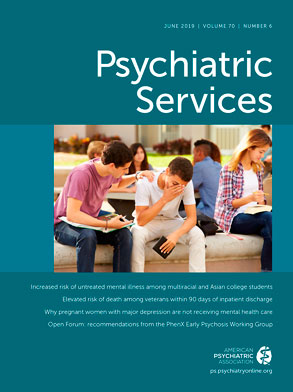TO THE EDITOR: Professional medical organizations are increasingly calling for reform of third-party payor prior-authorization (PA) requirements because of concerns about adverse effects on patient care and excessive administrative burdens for clinicians (
1). Although PA requirements primarily target prescription medications and procedures, there is widespread use of PAs specifically for inpatient behavioral health admissions. In 2008, the Mental Health Parity and Addiction Equity Act prohibited U.S. insurers from applying nonquantitative treatment limitations, such as PAs, more stringently to behavioral health care than to general medical care. However, 94% of private insurance plans still required PAs specifically for inpatient behavioral health care in 2014 (
2). Behavioral health clinicians encounter these PAs on a regular basis, yet research on and professional attention to their impact has been minimal. Although the American Psychiatric Association approved in 2001 a position statement addressing PAs for inpatient behavioral health admissions (3), it has not been reaffirmed since 2009. We found only two previous studies, neither in psychiatric journals, assessing these PAs. Those studies demonstrated that clinicians spent 38 minutes per PA phone call for patients of all ages (
4) and 60 minutes for pediatric patients (
5).
We sought to determine the prevalence of PA requirements for coverage of inpatient behavioral health admissions and to quantify the time spent obtaining PAs. Over a 4-month period, we collected a convenience sample of 35 adult patients admitted to McLean Hospital, a private psychiatric facility in Belmont, Massachusetts. Mean±SD age was 40±18 years (range 18–80), and predominant complaints were co-occurring mental and substance use disorders/detoxification (40%, N=14) and suicidal ideation/attempt (37%, N=13). Of the 35 admissions, 20 (57%) required immediate phone calls for PA. Of the 15 patients not requiring an admission PA, nine had Medicare, one had Tricare, four had insurers requiring notification the following day, and one was uninsured. PAs were approved in all cases. Clinicians spent 37.3±35.4 minutes (range 5.0–89.0 minutes) obtaining each PA approval. Notably, one insurer had an atypical policy allowing clinicians to call and quickly obtain a reference number for inpatient admissions. Excluding these calls from the analysis, the average time spent per call was 59.6±30.3 minutes (range 20.0–89.0 minutes).
Our findings indicate that PAs are still required for most inpatient behavioral health admissions, with no appreciable change in the time required to obtain them. Given the fact that all PA requests were approved, it is clear, as others have asserted, that PAs primarily reduce costs for payors through “rationing by hassle factor” (
4).
Because the process of obtaining PA is now a routine part of care delivery, it is easy to underestimate its powerful ability to hew clinician behavior in a manner that erodes the equitable delivery of inpatient services. PAs also pose an underrecognized barrier to their efficient delivery, which is important given growing demand for these services. Therefore, it is imperative that mental health care advocacy organizations begin working with payors and regulatory authorities to develop alternative cost containment strategies to the current PA system that do not rely on deterring busy clinicians from offering appropriate hospitalization to patients in need.

